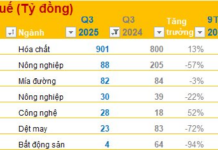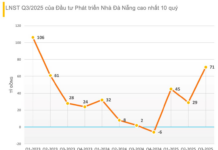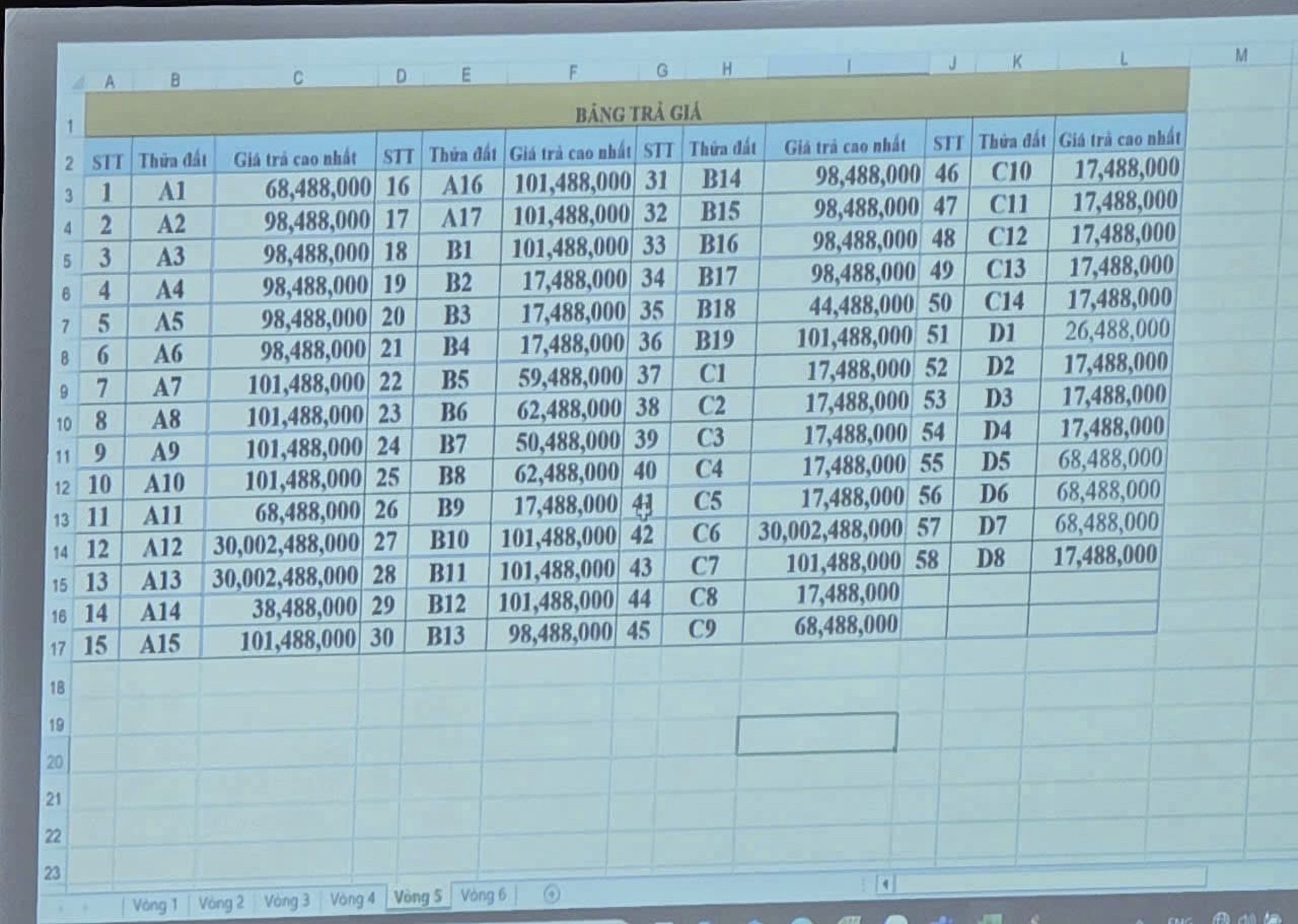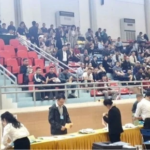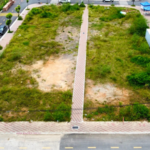On November 29th, 58 land plots in Dong Lai village, Quang Tien commune, Soc Son district, were put up for auction, ranging in size from 90 to 224 square meters, with a starting price of over 2.4 million VND per square meter.
The deposit required was 20% of the plot’s value at the starting price, translating to a range of approximately 223 million to nearly 550 million VND per plot.
The auction format consisted of six mandatory rounds of direct bidding, utilizing an ascending price method, with each bid increment set at 3 million VND per square meter. The highest bidder at the end of the sixth round would be declared the winner.
Interestingly, during the fifth round of the auction for these 58 land plots, a group of customers bid an unimaginable price for several lots. Three plots, specifically A12, A13, and C6, received bids of 30,002,488,000 VND per square meter. Over 20 other plots were also pushed to prices ranging from more than 98 million to over 101 million VND per square meter.
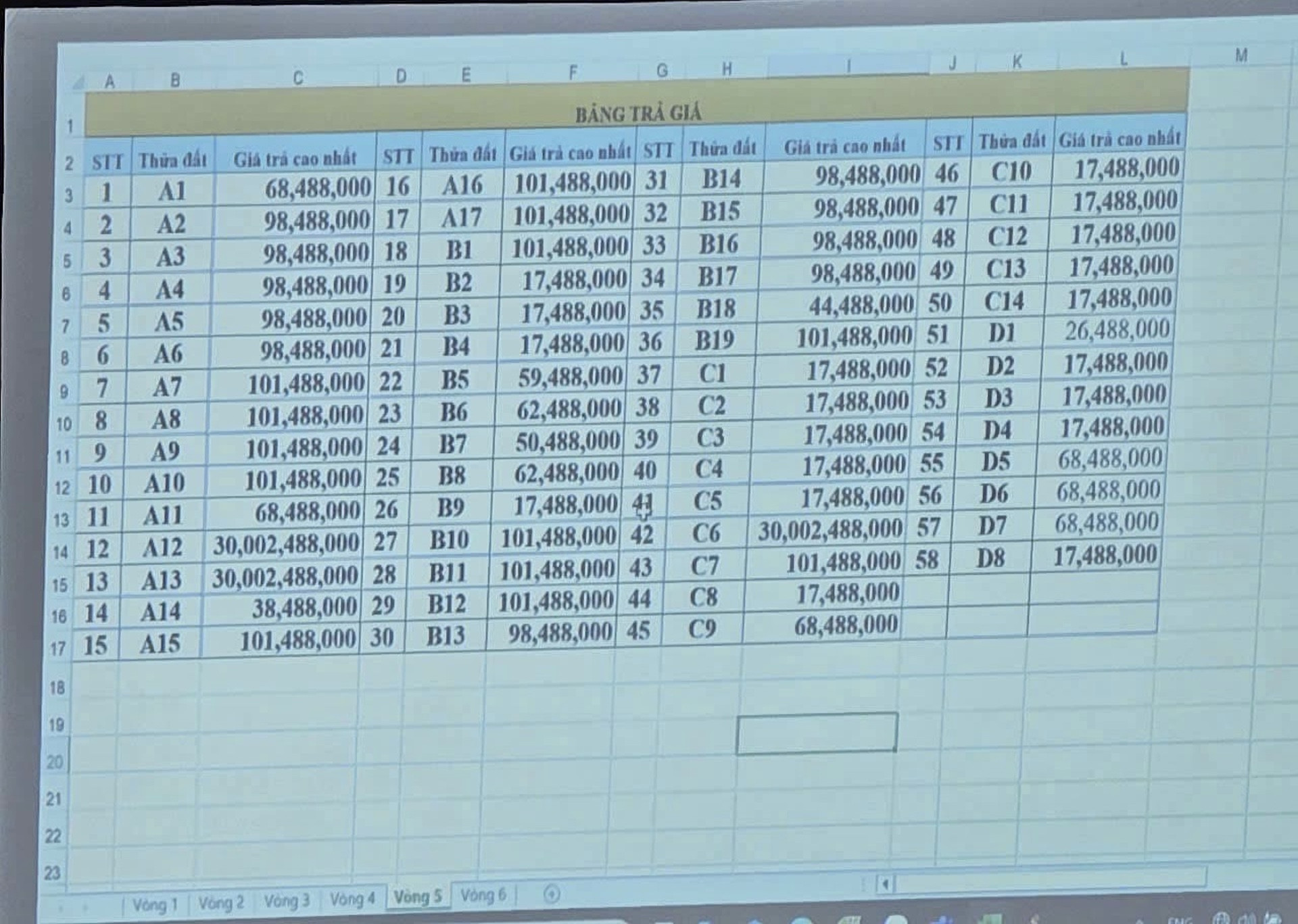
Bidding prices at the fifth round: Three plots reached an astonishing price of over 30 billion VND per square meter. Source: M.G |
However, in the sixth and final round, the group of customers who had previously bid extremely high prices chose not to place any bids, resulting in the auction being unsuccessful for those plots.
The auction continued, and the remaining plots were sold at prices ranging from over 32.4 to 50.4 million VND per square meter.
Speaking to the press, a leader of the Soc Son District People’s Committee shared that the plots that did not find winners in this auction would be put up for auction again in the future. They also stated that a report on the incident would be made to the appropriate authorities.
In the past three months, land auctions in outlying districts such as Thanh Oai and Hoai Duc have made headlines due to winning bids being several times higher than the starting prices, with the highest reaching over 100 million VND per square meter. These auctions were temporarily halted by the local authorities to review legal conditions, as instructed by higher authorities.
After a period of review, auctions resumed in several districts from mid-September onward. The auctions have shown signs of cooling down, with a decrease in the number of participants and bid amounts. Winning bid prices are no longer as high as they used to be.
|
Police involvement requested In September, the Hanoi People’s Committee sent a document to departments, sectors, and district-level People’s Committees regarding land-use right auctions. The document requested the Hanoi Police to apply professional measures to promptly detect any violations related to land auctions. It also asked them to guide the district-level People’s Committees in preventing violators from continuing to participate in auctions. Additionally, the police were tasked with proposing solutions to prevent or limit the participation of bidders who repeatedly win auctions with abnormally high bids and then forfeit their deposits. The Hanoi People’s Committee also instructed the district-level People’s Committees to create a list of bidders who consistently bid higher than the market price and fail to make payments, disrupting the market. This list will be publicized on the districts’ websites and the website of the Department of Natural Resources and Environment. |
Hong Khanh
The Ultimate Guide to the Upcoming Land Auction in Thanh Oai: 25 Prime Lots Up for Grabs
The upcoming auction of 25 land lots in Do Dong, Thanh Oai District, Hanoi, marks a significant event for the area. With a starting bid of VND 5.3 million per square meter, this auction, taking place on the morning of November 16, resumes after a two-month hiatus.
The Master Wordsmith’s Craft: Crafting a Captivating Headline
“Unveiling the Expert’s Land Auction Deposit Reduction Strategies: A Comprehensive Guide”
The proposed real estate tax reforms are designed to address the issues of land speculation and contract flipping. By increasing taxes on properties that are sold shortly after being acquired, or on land that remains undeveloped, the reforms aim to discourage speculative practices and reduce instances of price gouging and contract abandonment.













